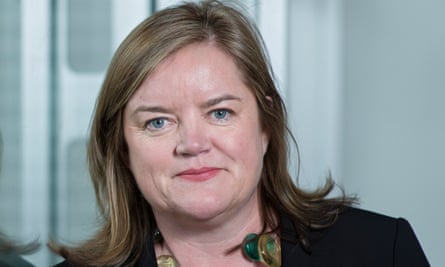Repeated calls from ministers for migrants to integrate have been undermined by major cuts in key programmes designed to help them settle, a new study has warned.
A failure to help is also locking many new arrivals into low-paid work and helping to raise local tensions, according to a study by the Institute for Public Policy Research thinktank (IPPR). It found there had been dramatic cuts in funding for English lessons and other help, and that more than 37% of EU migrants are overqualified for their jobs in the UK.
The study found that the annual budget for teaching English had fallen by almost two-thirds in less than a decade, from around £46 per head in 2009 to £16 in 2017.
It also found that funding for integration efforts, aimed at local authorities with high levels of migration, had dropped by almost a third, from £8 per migrant in 2009 to £5.63 in 2017. Additionally, there was evidence that local councils with the highest levels of migration have been disadvantaged most, as their funding had not kept pace with population growth.
David Cameron was among those to raise concerns about integration levels when he was prime minister. However, as recently as the end of last year the government’s former integration tsar, Louise Casey, said the government had done “absolutely nothing” about community cohesion.
The IPPR recommended a series of reforms. It called on ministers to increase spending on integration by £15m a year and to restore support for local authorities to the pre-2010 level. Programmes, it said, should be funded from visa and citizenship fees.
The thinktank conducted focus groups of Leave voters in Coventry and Corby, two towns that have experienced relatively high levels of migration and also recorded above average votes in favour of Brexit. The Coventry group said the city was a welcoming place, but there was a perception that some parts were becoming increasingly separate. One person said: “You have to have standards … Especially in a school, because if you’ve got a majority that don’t speak English … a lot of your time as a teacher is probably taken not teaching what you’re supposed to be teaching.”

Another said: “There [is] people in this country that have been here for years, they can’t speak English. Don’t want to speak English. And we haven’t done anything about it.”
In Corby, participants felt the changes caused by increased EU migration had been too swift and not properly managed. Speaking English was seen as an almost non-negotiable requirement. “It feels as if we have to accommodate them, not the other way around,” said one. Another stated: “You can’t read the signs in some of the foreign shops.”
Phoebe Griffith, IPPR associate director for immigration and integration, said: “There is much evidence that immigration has helped local economies grow, but we found that this contribution is far from even. Too many migrants struggle to find their feet quickly, becoming locked into low-paid employment or working at well below their skills level. Unlocking migrants’ contribution is also essential to ensuring that UK residents feel they benefit from immigration.People need to be reassured that high levels of immigration are helping generate growth and prosperity in the places where they live.”
A Home Office spokesman said the government was investing £50m into integration over the next two years. “Our integrated communities strategy green paper sets out our plan to build stronger, more united communities,” he said. “We have made £140m available through the controlling migration fund and, in June, £16m of it was given to projects to ease pressures from recent migration, help migrants find work and improve their English-language skills.”
